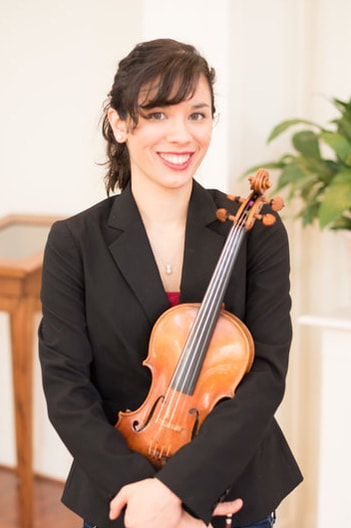In the last five years, I've had countless conversations with strangers who have noticed my violin case and whose curiosity has led them to ask what I play, and what I do. This is all fine. But then for some reason, an astonishing number of people decided that it was perfectly appropriate to comment on whether or not it's possible to make a living as a musician. I've gotten this from strangers in train stations, checkers at the grocery store, and even very well-meaning fellow parishioners at my church who seemed very concerned about the feasibility of my succeeding as a professional musician.
Here's the thing, and I feel like this goes for any fellow human you meet: It's really rude to ask people how much money they make. It's also rude to make assumptions about someone's state of employment based on their appearance - their age, what they're wearing, or if they have an instrument on their back. It is never okay to ask someone if they're making a living doing the job that they've just told you they do (or that you've just seen them do).
Being a musician is a real job. We provide services (our performances, our playing, our teaching, our time), and for these we are paid. It's basic economics. Now, since most of us are hired on a contract basis or work as entrepreneurs, we tend to lack things like employer-provided health insurance, sick days, parental leave, etc, but still. Our work is real work.
(Side note: I am not disputing that it is, in fact, incredibly challenging to make a living as a professional musician. It takes a lot of long hours of preparation, and a lot of work, and if one wants to make enough money to pay rent and other bills - don't get me started on student loans! - the concept of work-life balance basically gets thrown out the window. I know exactly how hard it is to be a professional musician. I just think that when I'm making small talk with strangers, I shouldn't constantly be questioned about it or have people make judgements about me when they don't know me).
If you're one of the millions of lovely people in the world who love music, who love the people who make and teach music, and who want to support us musicians in what we do, here's a practical list of actions and ways that you can directly help musicians - in the financial sense.
1. Go to a live concert. We need audiences. Even more, we need audiences who buy tickets. Also, attending a live concert is an incredibly special and wonderful experience. I think being a professional musician has made me appreciate being in the audience even more. Shut down your screens for an evening, turn off your work brain, and come let an artist take you into their world for a couple hours.
2. Buy a music album. There are more streaming services than ever, many of them free. If you want to support musicians, buy an album. The high level of skill it took to create the music on it, the cost and maintenance of the instruments they're performing on, not to mention the skill and equipment of the audio engineers needed to record and mix the album - this all cost money, much more than the $9.99 it's tempting to avoid paying on iTunes because you can stream it on YouTube for free.
3. Become a regular contributor to the arts organizations in your community, such as performing arts centers, community music schools, the arts programs in your public schools, or PBS. These organizations run on generous community donations. They want to provide you with great arts experiences - which all cost money to do.
(If you'd like to support two organizations that would directly impact me, I'd recommend making donations to Mason Community Arts Academy or the Tyson-McLean Orchestra!)
4. Seek out and listen to local artists. If there's a cool live band playing in the bar you and your friends go to, pick up their card, find their website, and buy an album. If you love the singer/songwriter playing in your favorite coffee shop, make sure to leave them a tip - and again, go find them on the web and support them!
5. Always pay an artist's full performance fee when hiring them for your event. Ask them what their rate is, up front, and then sign the contract, abide by the contract, and pay them on time. Related: Never ask your friends/family to play for your wedding for free. If you love their music THAT much, hopefully you love them enough to pay them their full fee. Now, it's always a nice gesture if your friend/relative says, "I couldn't possibly take your money - please, accept my music as your wedding gift" - but don't assume that they will play for free. Also, they might just want to celebrate you - and not spend the party doing what they do for work.
Stay tuned for Parts 2 and 3 of this new blog series, which will talk about ways to support musicians besides giving money, and suggestions for how to engage musicians in conversation without sounding like you're asking for their resume.

 RSS Feed
RSS Feed